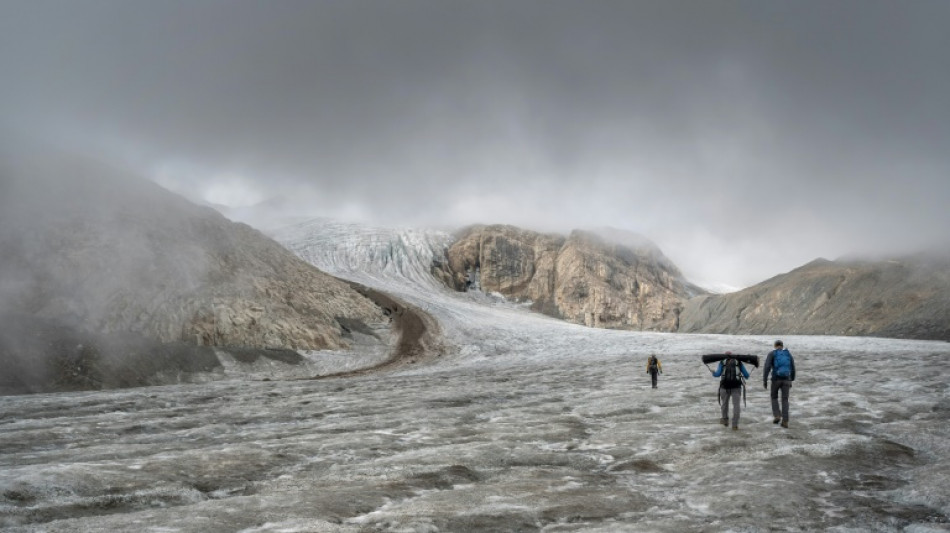
-
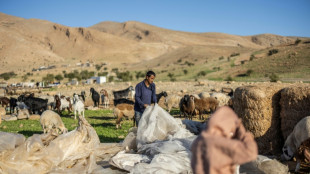 West Bank Bedouin community driven out by Israeli settler violence
West Bank Bedouin community driven out by Israeli settler violence
-
Asian markets mixed, Tokyo up on election speculation
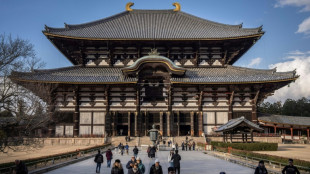
-
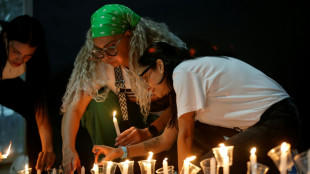 US official says Venezuela freeing Americans in 'important step'
US official says Venezuela freeing Americans in 'important step'
-
2025 was third hottest year on record: EU, US experts
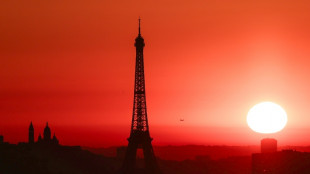
-
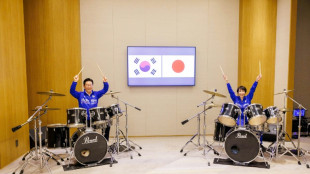 Japan, South Korea leaders drum up viral moment with K-pop jam
Japan, South Korea leaders drum up viral moment with K-pop jam
-
LA28 organizers promise 'affordable' Olympics tickets

-
 K-pop heartthrobs BTS to kick off world tour in April
K-pop heartthrobs BTS to kick off world tour in April
-
Danish foreign minister heads to White House for high-stakes Greenland talks
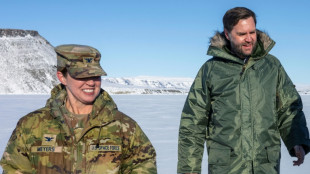
-
 US allows Nvidia to send advanced AI chips to China with restrictions
US allows Nvidia to send advanced AI chips to China with restrictions
-
Sinner in way as Alcaraz targets career Grand Slam in Australia

-
 Rahm, Dechambeau, Smith snub PGA Tour offer to stay with LIV
Rahm, Dechambeau, Smith snub PGA Tour offer to stay with LIV
-
K-pop heartthrobs BTS to begin world tour from April

-
 Boeing annual orders top Airbus for first time since 2018
Boeing annual orders top Airbus for first time since 2018
-
US to take three-quarter stake in Armenia corridor

-
 Semenyo an instant hit as Man City close on League Cup final
Semenyo an instant hit as Man City close on League Cup final
-
Trump warns of 'very strong action' if Iran hangs protesters

-
 Marseille put nine past sixth-tier Bayeux in French Cup
Marseille put nine past sixth-tier Bayeux in French Cup
-
US stocks retreat from records as oil prices jump
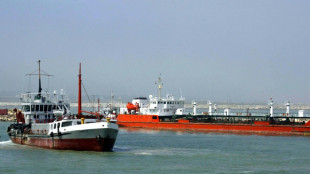
-
 Dortmund outclass Bremen to tighten grip on second spot
Dortmund outclass Bremen to tighten grip on second spot
-
Shiffrin reasserts slalom domination ahead of Olympics with Flachau win
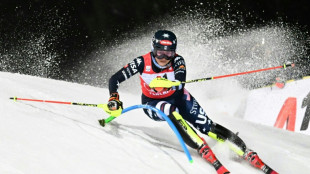
-
 Fear vies with sorrow at funeral for Venezuelan political prisoner
Fear vies with sorrow at funeral for Venezuelan political prisoner
-
Pittsburgh Steelers coach Tomlin resigns after 19 years: club

-
 Russell eager to face Scotland team-mates when Bath play Edinburgh
Russell eager to face Scotland team-mates when Bath play Edinburgh
-
Undav scores again as Stuttgart sink Frankfurt to go third

-
 Fuming French farmers camp out in Paris despite government pledges
Fuming French farmers camp out in Paris despite government pledges
-
Man Utd appoint Carrick as manager to end of the season

-
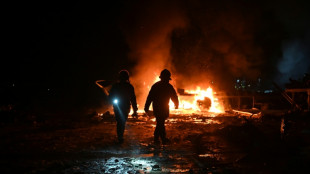 Russia strikes power plant, kills four in Ukraine barrage
Russia strikes power plant, kills four in Ukraine barrage
-
France's Le Pen says had 'no sense' of any offence as appeal trial opens
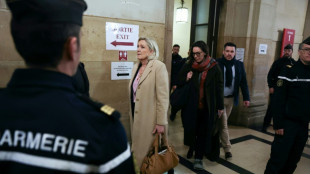
-
 JPMorgan Chase reports mixed results as Dimon defends Fed chief
JPMorgan Chase reports mixed results as Dimon defends Fed chief
-
Vingegaard targets first Giro while thirsting for third Tour title

-
 US pushes forward trade enclave over Armenia
US pushes forward trade enclave over Armenia
-
Alpine release reserve driver Doohan ahead of F1 season

-
 Toulouse's Ntamack out of crunch Champions Cup match against Sale
Toulouse's Ntamack out of crunch Champions Cup match against Sale
-
US takes aim at Muslim Brotherhood in Arab world

-
 Gloucester sign Springbok World Cup-winner Kleyn
Gloucester sign Springbok World Cup-winner Kleyn
-
Trump tells Iranians 'help on its way' as crackdown toll soars

-
 Iran threatens death penalty for 'rioters' as concern grows for protester
Iran threatens death penalty for 'rioters' as concern grows for protester
-
US ends protection for Somalis amid escalating migrant crackdown

-
 Oil prices surge following Trump's Iran tariff threat
Oil prices surge following Trump's Iran tariff threat
-
Fashion student, bodybuilder, footballer: the victims of Iran's crackdown

-
 Trump tells Iranians to 'keep protesting', says 'help on its way'
Trump tells Iranians to 'keep protesting', says 'help on its way'
-
Italian Olympians 'insulted' by torch relay snub

-
 Davos braces for Trump's 'America First' onslaught
Davos braces for Trump's 'America First' onslaught
-
How AI 'deepfakes' became Elon Musk's latest scandal

-
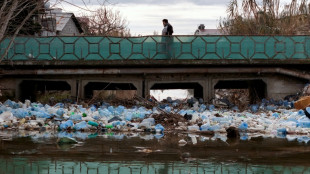 Albania's waste-choked rivers worsen deadly floods
Albania's waste-choked rivers worsen deadly floods
-
Cancelo rejoins Barca on loan from Al-Hilal

-
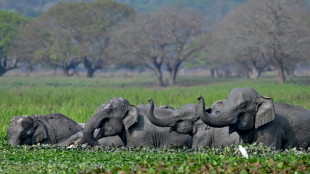 India hunts rampaging elephant that killed 20 people
India hunts rampaging elephant that killed 20 people
-
Nuuk, Copenhagen mull Greenland independence in Trump's shadow
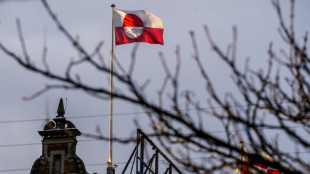
-
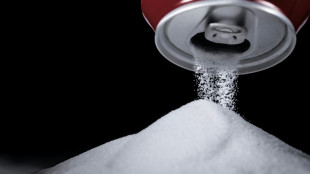 WHO says sugary drinks, alcohol getting cheaper, should be taxed more
WHO says sugary drinks, alcohol getting cheaper, should be taxed more
-
Arteta urges Arsenal to learn from League Cup pain ahead of Chelsea semi
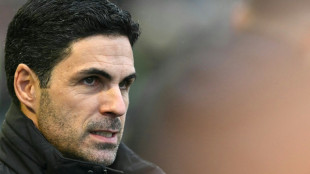

Swiss glaciers melting away at record rate
Switzerland's glaciers lost six percent of their total volume this year due to a dry winter and repeated summer heatwaves, shattering previous ice melt records, a report revealed Wednesday.
The study by the Cryospheric Commission (CC) of the Swiss Academy of Sciences laid bare the drastic scale of glacial retreat -- which is only set to get worse.
"2022 was a disastrous year for Swiss glaciers: all ice melt records were smashed," the CC said, adding that a two percent loss in 12 months had previously been considered "extreme".
Three cubic kilometres of ice -- three trillion litres of water -- have melted away, the report said.
"It's not possible to slow down the melting in the short term," said glaciology professor Matthias Huss, head of Glacier Monitoring in Switzerland, which documents long-term glacier changes in the Alps and is coordinated by the CC.
If carbon dioxide emissions are reduced and the climate protected, "this might save about one third of the total volumes in Switzerland in the best case", he told AFP.
Otherwise, the country "will be losing almost everything by the end of the century".
- Saharan dust speeds melt -
At the start of the year, the snow cover in the Alps was exceptionally light, then a large volume of sand dust blew in from the Sahara Desert between March and May, settling on the surface.
The contaminated snow absorbed more heat and melted faster, depriving the glaciers of their protective snow coating by early in the European summer.
The continuous heat between May and early September therefore ravaged the glacial ice.
By mid-September, the once-thick layer of ice that covered the pass between the Scex Rouge and Tsanfleuron glaciers had completely melted away, exposing bare rock that had been frozen over since at least the Roman era.
And in early July, the collapse of a section of the Marmolada glacier, the biggest in the Italian Alps, killed 11 people and highlighted how serious the situation had become.
According to an Intergovernmental Panel on Climate Change report published in February, the melting of ice and snow is one of the 10 key threats from climate change.
- Smallest glaciers hardest hit -
"The loss was particularly dramatic for small glaciers," the CC said.
The Pizol, Vadret dal Corvatsch and Schwarzbachfirn glaciers "have practically disappeared -- measurements were discontinued", the commission said.
In the Engadine and southern Valais regions, both in the south, "a four to six-metre-thick layer of ice at 3,000 metres above sea level vanished," said the report.
Significant losses were recorded even at the very highest measuring points, including the Jungfraujoch mountain, which peaks at nearly 3,500 metres.
"Observations show that many glacier tongues are disintegrating and patches of rock are rising out of the thin ice in the middle of glaciers. These processes are further accelerating the decline," said the report.
"The trend also reveals how important glaciers are to the water and energy supply in hot, dry years," the report stressed -- something to consider given that hydroelectricity provides more than 60 percent of Switzerland's total energy production.
The glacial meltwater in July and August alone would have provided enough water this year to completely fill all the reservoirs in the Swiss Alps.
But Huss said that if the country experienced this year's meteorological conditions in 50 years' time, "the impact would be much stronger, because in 50 years, we expect that almost all glaciers are gone and therefore cannot provide water in a hot and dry summer".
- Melt reveals macabre finds -
The melting of the glaciers has also had some unexpected consequences.
Hikers are regularly making macabre discoveries as bodies are being freed from the ice they have been encased in for decades or even centuries.
The melting can also be a boon for archaeologists who suddenly have access to objects that are thousands of years old.
Meanwhile the melting of a glacier between Italy and Switzerland has moved the border that ran along the watershed, forcing lengthy diplomatic negotiations.
Z.Ramadan--SF-PST



